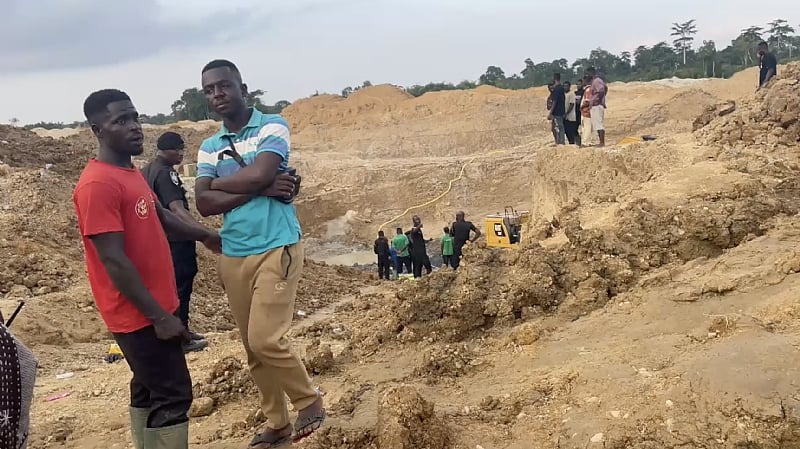The devastating collapse of an illegal mining pit in Akyem Wenchi, Ghana, has plunged the community into mourning and sparked a frantic rescue operation. At least eleven lives have been confirmed lost, with dozens injured and an unknown number still trapped beneath the rubble. The precarious nature of the rescue efforts, hampered by unstable ground and the sheer volume of debris, underscores the inherent dangers of unregulated mining practices. As rescue teams, comprising personnel from NADMO, the Ghana Police Service, the Ghana National Fire Service, and the Ambulance Service, work tirelessly against the clock, the agonizing wait for news continues for families and friends of the missing miners. The scene at the disaster site is a poignant tableau of grief, desperation, and dwindling hope.
The collapse, the cause of which is still under investigation, lays bare the persistent problem of illegal mining in Ghana. This unregulated industry operates outside legal frameworks and safety regulations, often leading to catastrophic consequences. The pursuit of precious minerals, driven by economic hardship and the allure of quick riches, often overshadows the inherent risks involved in such precarious operations. The Akyem Wenchi tragedy serves as a grim reminder of the human cost of illegal mining, adding another chapter to a long history of similar incidents that have claimed countless lives across the country. The absence of proper oversight and enforcement allows these dangerous practices to continue, putting vulnerable individuals at risk.
While the immediate focus remains on rescuing any possible survivors, the incident demands a broader reflection on the underlying issues that perpetuate illegal mining. Poverty, lack of alternative livelihood opportunities, and weak regulatory enforcement create a fertile ground for this dangerous industry to thrive. The allure of potential wealth often outweighs the perceived risks for those involved, leading them to engage in precarious mining activities despite the known dangers. This cycle of poverty and risk-taking must be addressed through comprehensive strategies that provide sustainable economic alternatives and strengthen regulatory frameworks to deter illegal mining operations.
The investigation into the Akyem Wenchi disaster should not only determine the immediate cause of the collapse but also delve into the systemic failures that contribute to the prevalence of illegal mining. Understanding the root causes, from socioeconomic factors to regulatory loopholes, is crucial for developing effective solutions. This requires a multi-faceted approach involving government agencies, local communities, and relevant stakeholders to create a collaborative effort to address the complex web of issues that perpetuate illegal mining. Accountability must be established, not only for those directly involved in the operation but also for any systemic failures that contributed to the tragedy.
Beyond the immediate crisis, the long-term consequences of illegal mining extend far beyond the loss of human life. Environmental degradation, including deforestation, water pollution, and soil erosion, are often irreversible byproducts of these unsustainable practices. The destruction of ecosystems has far-reaching implications for local communities, impacting their health, livelihoods, and overall well-being. The Akyem Wenchi incident underscores the urgent need for sustainable and responsible mining practices that prioritize both human safety and environmental protection.
The Akyem Wenchi mining tragedy serves as a stark reminder of the urgent need for comprehensive reforms in Ghana’s mining sector. Addressing the root causes of illegal mining, strengthening regulatory frameworks, and promoting sustainable alternatives are crucial steps towards preventing future disasters. This requires a concerted effort from all stakeholders, including government agencies, mining companies, local communities, and international organizations, to create a safer and more sustainable mining industry that prioritizes human life and environmental protection. The memory of those lost in Akyem Wenchi should serve as a catalyst for meaningful change, ensuring that such tragedies are not repeated. The focus should shift from reactive measures to proactive strategies that address the underlying issues and promote responsible mining practices for the benefit of all.


